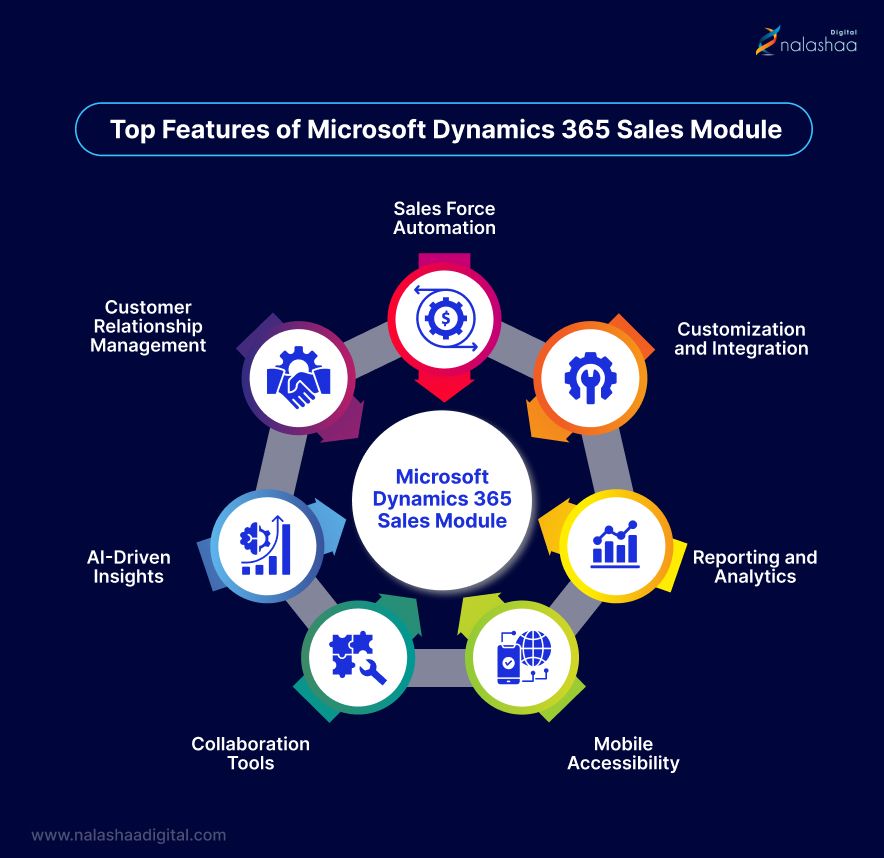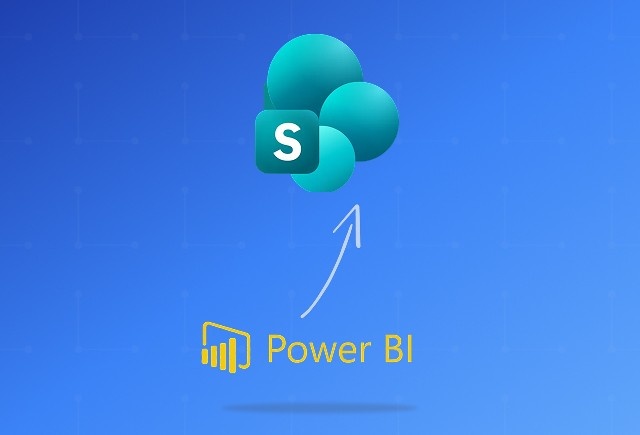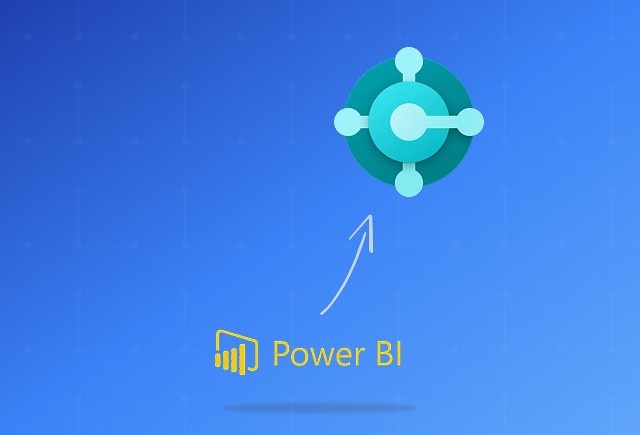Microsoft Dynamics 365 Sales Module Features [With Pricing Details]
Nov 18, 2024 Aiswarya Madhu
Editor’s Note
Did you know that over 50% of customers expect a response within an hour? A slow sales process can lead to frustration and lost opportunities. In this blog on Dynamics 365 Sales module features, we explore how the right tools can optimize your sales process, keeping customers satisfied and engaged. Don’t miss out—read on to learn more!
Every business that aims to scale faces the challenge of maintaining consistent customer relationships while managing an ever-growing sales pipeline. Traditional methods of using spreadsheets, manual processes, or basic CRM tools often fail to deliver the necessary visibility and control over the sales process as the business expands. To meet these demands, organizations are increasingly turning to advanced solutions that offer streamlined processes and enhanced insights. One such solution that stands out is Microsoft Dynamics 365 Sales Automation.
Here is a complete guide that helps you understand the Microsoft Dynamics 365 Sales Module Features inside out.
What is Dynamics 365 Sales Module?
Sales Module in Dynamics 365 is a comprehensive sales automation and customer relationship management platform designed to streamline the sales process from lead acquisition to closing deals.
It enables sales professionals to build strong customer relationships, capture leads, manage opportunities, and forecast sales revenue effectively. The module utilizes AI-driven insights to enhance decision-making, helping sales teams prioritize leads and identify opportunities for growth.
Moreover, with features such as automated workflows, multi-channel communication integration, and robust reporting tools, the sales module in Dynamics 365 empowers organizations to improve their sales processes and overall productivity.
Additionally, it offers seamless integration with other Microsoft products, allowing users to leverage familiar tools while managing customer data and sales activities. Overall, the Dynamics 365 Sales Module is designed to increase efficiency and drive revenue through enhanced visibility and actionable insights.
Top 7 Microsoft Dynamics 365 Sales Module Features
D365 Sales modules are designed to support sales teams by simplifying tasks, improving customer engagement, and increasing efficiency. Let's explore Dynamics 365 Sales module features with real-life examples, so you can clearly understand how these tools empower sales professionals in their day-to-day operations.

1. Sales Force Automation
Sales Force Automation is one of the Dynamics 365 Sales module features, designed to streamline repetitive tasks and enable sales teams to focus on high-value activities. Here are some of the capabilities of this Sales feature:
Visual Insights:
Picture this—you’re a sales manager trying to monitor your team's performance. Instead of digging through spreadsheets, Dynamics 365 provides ready-made dashboards that instantly highlight key metrics like deal velocity, win rates, or pipeline health. You can quickly spot which deals are moving too slowly and intervene before they go cold.
Customer 360° View:
Imagine you’re about to hop on a call with a potential client. Instead of scrambling to gather past interactions, Dynamics 365 Sales gives you a complete view of the customer's history, including past communications, preferences, and previous orders—all in one place. This way, you can tailor your pitch based on what matters most to the client, increasing your chances of closing the deal.
Business Process Flow:
Let’s say your sales team is following a standardized process. With Dynamics 365, a guided workflow ensures your team takes the right steps at every stage of the deal. For instance, after a lead reaches a certain stage, the system automatically suggests setting up a demo or following up via email, ensuring no steps are skipped.
Activities Timeline:
You had a conversation with a client a week ago, and now it's time to follow up. The timeline feature shows you a chronological list of all activities—emails, calls, and meetings—so you know exactly what was discussed and what needs to be addressed next. This helps you keep the conversation personalized and relevant.
Document Management:
Suppose you're finalizing a contract. Instead of searching through emails for the latest version of a proposal, you can store and access all documents related to an opportunity within Dynamics 365 Sales. Everyone on the team, including legal, can view and collaborate on the same document, ensuring no one is left out of the loop.
Opportunity-to-Invoice Process:
You’ve just closed a deal. With a few clicks, Dynamics 365 Sales allows you to generate a quote and convert it into an invoice—all within the same system. This eliminates delays in billing and ensures the deal moves quickly from closed to paid.
Document Templates:
Imagine preparing a contract or quote for a customer, but needing it to reflect your company’s branding. Instead of starting from scratch each time, you can use pre-built, customizable Word and Excel templates that ensure professional, on-brand documents every time.
2. Customer Relationship Management
Dynamics 365 Sales helps you manage customer relationships efficiently. Here’s how it supports CRM functionalities:
Account and Contact Management:
Suppose you’re managing multiple clients with different needs. Dynamics 365 Sales enables you to track every interaction, update contact details, and set follow-up tasks for each client. This gives you a centralized database of all client interactions, ensuring you never miss a beat, whether you're following up on a lead or nurturing a long-term client.
Lead and Opportunity Management:
Imagine you have 50 new leads coming from different sources (email campaigns, referrals, website inquiries). Dynamics 365 Sales helps you manage them by categorizing leads, tracking their progress through the funnel, and prioritizing those that are most likely to convert. This means you focus your efforts on leads that are most valuable, helping to improve conversion rates.
Campaign Management:
If your marketing team just launched a new product, Dynamics 365 Sales allows you to create targeted email lists and run specific campaigns aimed at promoting this product. You can track responses, monitor engagement, and seamlessly transition interested leads into the sales pipeline.
3. AI-Driven Insights and Predictive Analytics
AI tools in Dynamics 365 Sales analyze data to offer sales teams actionable insights, improving decision-making and customer interactions.
Below are some of the ways AI feature in Dynamics 365 Sales module enhances your sales rep’s capabilities:
Guided Selling:
Picture this—you have 20 deals in your pipeline, but how do you know which to prioritize? Dynamics 365’s Sales Accelerator analyzes historical data and suggests which deals are most likely to close soon, helping you focus on the ones that matter most. This ensures your time is spent on high-priority clients, not wasted on low-potential deals.
Relationship Intelligence:
Let’s say a client has been less responsive lately. The Relationship Intelligence feature detects this and flags it, indicating that the relationship might be weakening. The system might suggest sending a follow-up email or scheduling a call, ensuring you don’t lose the client due to inactivity.
Predictive Models:
Imagine you’re looking at a large list of leads and need to prioritize who to contact first. Predictive lead scoring uses AI to rank your leads based on their likelihood to convert. This helps you focus your efforts on the highest-potential leads, increasing your win rate.
Ready to boost your sales performance? Let our experts guide your Microsoft Dynamics 365 Sales implementation and unlock the full potential of your CRM.
Collaboration Tools
Collaboration between teams is key to closing deals, and Dynamics 365 makes it seamless. Here are some of the ways the sales module in Dynamics 365 enhances collaboration and helps teams work together efficiently to close deals:
Microsoft Teams Integration:
Suppose you’re working on a big deal with multiple stakeholders. Dynamics 365 Sales integrates with Microsoft Teams, allowing you to share deal progress, documents, and customer insights across departments in real-time. This ensures everyone—from marketing to customer service—has access to the same data, fostering better collaboration.
LinkedIn Sales Navigator Integration:
You’re preparing for a meeting with a potential client, and LinkedIn Sales Navigator (integrated within Dynamics 365) shows you the client's professional background, common connections, and recent job changes. This helps you personalize your approach, making the conversation more meaningful and increasing the likelihood of closing the deal.
Multi-Channel Communication:
Say you’ve just spoken to a client over the phone, but they prefer email for follow-up. Dynamics 365 allows you to communicate with clients across multiple channels, such as softphone, email, and even Microsoft Teams, all from within the platform. This ensures you can engage with clients on their preferred channels, improving customer satisfaction.
Spice Up Your Knowledge on Dynamics CRM Integration Capabilities
Discover the top Microsoft Dynamics CRM integration tools and key possibilities to streamline workflows, enhance productivity, and unlock the full potential of your business processes.
- Explore Microsoft Dynamics 365 EDI integration methods, benefits, and a complete checklist to streamline business processes, automate data exchange, and enhance operational efficiency.
- Learn how integrating HubSpot with Microsoft Dynamics 365 streamlines sales and marketing efforts, enhances data synchronization, and boosts customer engagement.
- Discover how Dynamics CRM eCommerce integration can enhance efficiency, automate workflows, and optimize customer experiences. Learn the key steps and benefits in this comprehensive guide.
Mobile Accessibility
For sales reps on the go, staying connected is vital. Dynamics 365’s mobile capabilities make this easy. Here are the top Dynamics 365 sales module features that enhance mobility:
Mobile Application:
Imagine you’re in the field visiting clients. With the Dynamics 365 sales app, you can pull up customer details, view recent interactions, and update records—all from your phone. This ensures that you always have the latest data at your fingertips, even when you’re away from your desk.
Task Management:
Let’s say you’ve just finished a meeting with a client. Using the mobile app, you can quickly add notes, update the opportunity status, and set a reminder for the next follow-up. This keeps you organized and ensures that nothing slips through the cracks.
6. Reporting and Analytics
Understanding performance is critical for improving sales strategies. Dynamics 365 provides advanced tools to track and analyze key metrics.
Interactive Dashboards:
You’re a sales manager reviewing your team's performance. Instead of waiting for end-of-month reports, you can access real-time dashboards that show metrics like deal closure rates, sales targets, and individual rep performance. This allows you to identify gaps and provide immediate coaching to underperforming team members.
Forecasting Capabilities:
You want to predict how much revenue your team will generate in the next quarter. Dynamics 365 Sales offers advanced forecasting tools that analyze past performance to give you a realistic projection. This helps you make informed decisions on staffing, budgeting, and strategy.
7. Customization and Integration
Dynamics 365 Sales is highly customizable, allowing businesses to tailor the platform to their specific needs.
Power Platform Integration:
Let’s say you need a custom app to track a unique sales process. With Power Apps, you can create an app that integrates with Dynamics 365 without needing extensive coding knowledge. Or, if you want to automate certain tasks, Power Automate allows you to build workflows that save time—such as automatically sending a follow-up email when a deal reaches a certain stage.
No-Code Custom Recommendations:
Your sales process might have specific steps that are unique to your industry. With the no-code environment, you can customize the system to recommend specific actions to your team, ensuring everyone follows the same optimized process.
Application Integrations:
If your team uses LinkedIn Sales Navigator or other tools like ZoomInfo, Dynamics 365 seamlessly integrates with these platforms. For instance, if a sales rep connects with a lead on LinkedIn, that data can automatically sync with Dynamics 365, ensuring all information is up-to-date.
Dynamics 365 Sales Module Pricing & Licensing
Microsoft Dynamics 365 Sales offers a range of flexible licensing options tailored to meet the unique needs of businesses of all sizes, from small enterprises with straightforward sales processes to large organizations that rely heavily on advanced AI-driven insights. With different levels of functionality, organizations can choose the right tools to optimize their sales strategies without overpaying for features they don’t need. Here's a breakdown of the key licensing options:
1. Sales Professional License
Price: £49 per user/month
Target Audience: Small businesses or organizations with basic sales operations.
Key Features:
- Core CRM functionalities for managing leads, opportunities, and customer relationships.
- Basic sales pipeline management, enabling tracking and forecasting of sales activities.
- Simplified configuration with limited customization options.
- Integration with Microsoft Office 365 and Outlook for basic sales automation.
The Sales Professional License is ideal for smaller organizations that are transitioning from manual processes to a more structured CRM system. It provides essential tools for managing customer data, leads, and opportunities in a streamlined and efficient way, without the need for complex customization or advanced AI capabilities.
2. Sales Enterprise License
Price: £71.60 per user/month
Target Audience: Mid-sized to large organizations with more complex sales operations.
Key Features:
- Includes all features of the Sales Professional license, plus advanced sales management capabilities.
- Customizable workflows and robust sales performance tracking.
- AI-driven predictive insights to help sales teams prioritize leads and close deals faster.
- Advanced opportunity and territory management for better sales oversight.
- Deep integration with Power BI for advanced data analytics and real-time reporting.
The Sales Enterprise License is designed for businesses with more sophisticated sales processes. It allows for a high level of customization, advanced reporting, and AI-powered insights, which make it easier for sales teams to manage complex pipelines, track performance, and make data-driven decisions. This license is perfect for companies looking to tailor their CRM to specific business needs while benefiting from predictive analytics.
3. Sales Premium License
Price: £101.80 per user/month
Target Audience: Large enterprises or organizations that rely heavily on data-driven insights for sales strategies.
Key Features:
- Combines all the features of the Sales Enterprise license with advanced AI capabilities provided by the Sales Insights add-on.
- AI-powered tools for opportunity scoring, relationship health tracking, and lead prioritization.
- Automated sales workflows and enhanced customer relationship management through AI-driven insights.
- Full integration with Dynamics 365’s broader ecosystem, offering a seamless experience from lead generation to deal closure.
The Sales Premium License is best suited for large enterprises or organizations that want to harness the power of AI to improve sales performance and decision-making. It offers the most comprehensive set of tools for optimizing sales strategies through AI insights, relationship health monitoring, and predictive analytics, making it the go-to choice for data-driven organizations.
4. Team Member License
Price: £6 per user/month
Target Audience: Employees who need limited access to the system, such as support staff or junior sales roles.
Key Features:
- Basic access to view sales data, manage contacts, and use limited CRM functionalities.
- Suitable for team members who don’t need full CRM access but still require visibility into customer data.
The Team Member License provides an affordable solution for employees who need occasional access to customer data or other CRM features but don’t require full functionality. This is ideal for support roles, customer service staff, or entry-level sales employees.
5. Sales Insights Add-On
For organizations using the Sales Enterprise or Sales Premium licenses, Microsoft offers the Sales Insights Add-On to enhance AI-driven sales capabilities.
Key Features:
- AI-driven predictive scoring for leads and opportunities.
- Relationship management tools to help sales professionals build stronger customer connections.
- Analytics that track customer interactions and offer actionable insights for personalized engagement.
This add-on is perfect for businesses that want to use AI to further improve their sales strategies, providing deeper insights into customer behaviors and sales pipeline dynamics.
Choosing the Right Dynamics 365 Sales License
When selecting the appropriate Dynamics 365 Sales license, it's essential to consider the size and complexity of your sales operations.
- Sales Professional License: Small businesses with basic CRM needs will find this the most cost-effective solution, offering all the essential tools to move away from manual processes.
- Sales Enterprise License: Mid-sized to large organizations that require customization, AI insights, and advanced reporting capabilities should opt for this license.
- Sales Premium License: Large enterprises or data-driven organizations that heavily rely on analytics and AI-driven sales strategies will benefit most from this license, ensuring they have the most advanced tools available for optimizing sales performance.
Each licensing option is designed to provide scalable solutions that grow with your business, ensuring that no matter your size or sales complexity, you have the tools needed to drive success with Dynamics 365 Sales.
Nalashaa developed a custom Dynamics CRM solution tailored to the architectural engineering sector, enhancing sales process management through relationship intelligence and multidimensional insights. This flexible, mobile-friendly CRM improved business development cycles and strengthened both internal and external relationships, driving better sales outcomes.
Read more to learn how this solution transformed their sales performance.
Conclusion
Utilizing Dynamics 365 Sales allows for smooth progression through each sales stage, offering data-driven insights and goal-setting tools that enhance deal closures. By optimizing lead interactions and increasing efficiency, it equips your business with the tools necessary to stay competitive in a rapidly evolving market.
For tailored guidance on maximizing Dynamics 365 Sales module features, connect with our experts today.
FAQ
Recent Posts

15+ Years In [From Dynamics 365 Expertise to Enterprise Solutions Delivery]
Jan 20, 2026

Power BI SharePoint Integration Guide
Jan 09, 2026

Dynamics 365 Business Central Power BI Integration [A Complete Guide]
Jan 07, 2026
Category
Our Expertise
About Author

Aiswarya Madhu
Aiswarya Madhu is an experienced content writer with extensive expertise in Microsoft Dynamics 365 and related Microsoft technologies. With over four years of experience in the technology domain, she has developed a deep understanding of Dynamics 365 applications, licensing, integrations, and their role in driving digital transformation for organizations across industries.
Never Miss News
Want to implement Dynamics 365?
We have plans which will meet your needs, and if not we can tweak them around a bit too!


